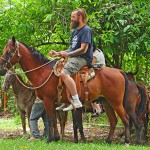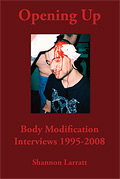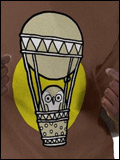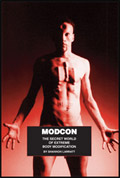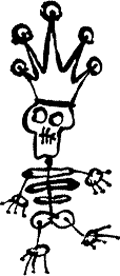Long ago a friend gave me the book The Power of Myth, the companion piece to the PBS series about/with Joseph Campell. The book opens with a discussion in which Campell says,
People say that what we’re all seeking is a meaning for life. I don’t think that’s what we’re really seeking. I think that what we’re seeking is an experience of being alive, so that our life experiences on the purely physical plane will have resonances within our own innermost being and reality, so that we actually feel the rapture of being alive.
…The mind has to do with meaning. What’s the meaning of a flower? There’s a Zen story about a sermon of the Buddha in which he simply lifted a flower. There was only one man who gave him a sign with his eyes that he understood what was said. Now, the Buddha himself is called “the one thus come.” There’s no meaning. What’s the meaning of the universe? What’s the meaning of a flea? It’s just there. That’s it. And your own meaning is that you’re there. We’re so engaged in doing things to achieve purposes of outer value that we forget that the inner value, the rapture that is associated with being alive, is what it’s all about.
I really like that line of thinking, and with all the work that I’ve been doing on my memoirs can see this quest not just in my own life, but in the lives that intertwine with mine. The attempt to “feel the rapture of being alive” is a recurring theme for people involved with body-centric rituals and modification… One of the things I’m hoping to explore in the book is my experience in leaving BME, which I see not just as a personal matter, but as related to the mainstreaming of the body modification experience. I’ve felt like there’s a certain rejection of the spiritual (for lack of a better word) elements in body modification in favour of the fashion elements, and it got me wondering whether there are larger parallels there — that other spiritual paths, other paths up the mountain (to paraphrase Ram Dass) have been co-opted by forces of a non-inner nature? Is the transition of powerful mythology to summer blockbuster movie part of the same slow death? The transition from shamanic drug use to recreational drug use?
I wonder if we are cutting ourselves off bit by bit from inner experience as we figure out ways to commodify the profound? I also wonder, as I write my memoir and BME history, what my role in this has been in my own sphere of influence? I know that I played a significant role in bringing body modification to millions of people, but I also wonder if my zeal to push it so far into the public eye and demand its acceptance also forces me to accept a strong role in deeply damaging this pathway?

As a side note, Campell also recounts a fanciful story about early computing — President Eisenhower gets brought into one of the early supercomputers, a gargantuan house-sized calculating behemoth of vacuum tubes, and the engineers proudly give him the tour and sit him down at the console. “Go ahead, ask it a question,” they say, and Eisenhower types in, “DOES GOD EXIST?”
A moment later the machine replies, “HE DOES NOW.”
So I wondered, in a thousand years (or ten years), when machines have surpassed our brainpower and have become fantastically intelligent machines — which I have no doubt will come with many of the eccentricities and dreams and passions of consciousness — will they have a mythology? And will it begin with a story like this?











